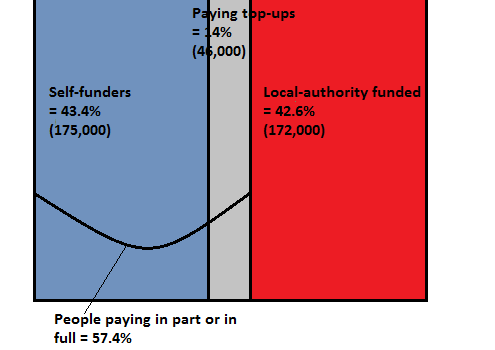Cost of care for people with dementia UK
If you or your loved one has developed dementia or is at risk of it, then you’d likely be concerned about the cost of care. Dementia is a progressive condition, so care would typically be required until one’s final moment. But note, dementia costs are essentially associated with care rather than treatment.
According to Alzheimer’s Society, the total (lifetime) cost of care for people living with dementia is around £100,000. This is the expected cost from the time care begins to when the inevitable happens. However, dementia care can also cost as much as 500,000, especially when the patient has complex health and care needs and they end up living for longer.
On average, the annual cost of care for a dementia patient in the UK is 32,250.
Do I get to pay the cost of dementia care myself?
Of course, the amount looks overwhelming, and you’re probably asking if you’d get any public assistance. Yes, you will.
Families may not get to shoulder the entire financial burden of their elderly loved one’s dementia care. Persons with dementia may be eligible for The National Health Service (NHS) continuing healthcare if they have complex health needs. It is free and funded by their local clinical commissioning group (CCG).
However, care will not be administered by the NHS but through the social care system.
How do I become eligible for social care with dementia?
As things currently stand, your local clinical commission group will pay for your entire dementia care if you own below £23,250 as total assets. However, the real situation is that two-thirds of the total annual dementia care cost (£34.7 billion) is paid by the individuals and their families, whether in their own property or a private care home. We can assume that this is because most people earn above the threshold amount.
Why are people affected by dementia and their families responsible for the cost of care?
Dementia is a complex condition that may require personalized support. Care homes may need to charge a premium rate for the extra care, which becomes more than social care offers, about 15% more on average. Therefore, families would need to pay for this extra cost (top-up) as the NHS will not readily fund it.
Unfortunately, some people with dementia may not get to benefit from the NHS funding. In fact, they may have to foot it all by themselves, as opposed to other seniors without dementia.
The lifetime cost of care for people with dementia was found to be around £133,850 more than those without.
What if the person affected with dementia does not have the financial capacity to fund their cost of care?
An individual with dementia will not have to fund their entire care if their estate values below £23,250. The local authority will be responsible for basic care, while the individual would have to fund the remainder and any top-ups themselves.
If you eventually run out of money, the council will continue paying for your care.
However, your entire estate value may be tied to your home. That is, your house is all you have. In that case, you can apply for a deferred payment scheme where the local authority pays for your dementia care, and then you repay when you sell your home or eventually pass away.




